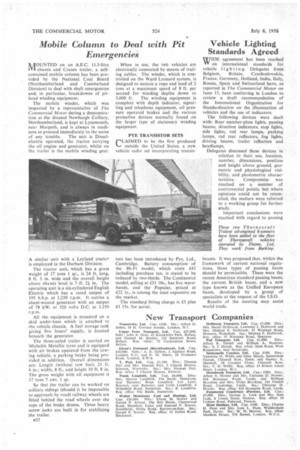Vehicle Lighting Standards Agreed
Page 42

If you've noticed an error in this article please click here to report it so we can fix it.
WIDE agreetnent has been reached IT on international standards for vehicle lightin g. Delegates from Belgium, Britain, Czechoslovakia, France, Germany, Holland, India, Italy, Russia, Spain and Switzerland have, as reported in The Commercial Motor on June 15, been conferring in London to review a draft recommendation of the International Organization for Standardization on the illumination of vehicles and the use of indicators.
The following devices were dealt with: Rear number-plate lights, passing beams, direction indicators, stop lights, side lights, red rear lamps, parking lamps, red rear reflectors, fog lights, driving beams, trailer reflectors and headlamps.
Delegates discussed these devices in relation to their use, location, number, dimensions, position and height above ground, geometric and physiological visibility, and photometric characteristics. Compromise was reached on a number of controversial points, but where opinions could not be reconciled, the matters were referred to a working group for further study.
Important conclusions were reached with regard to passing beams. It was proposed that, within the framework of current national regulations, three types of passing beam should be permissible. These were the recent American standard passing beam, the current British beam, and a new type known as the Unified European beam, developed by a group of specialists at the request of the 1.S.O.
Results of the meeting may assist world trade.
























































































































